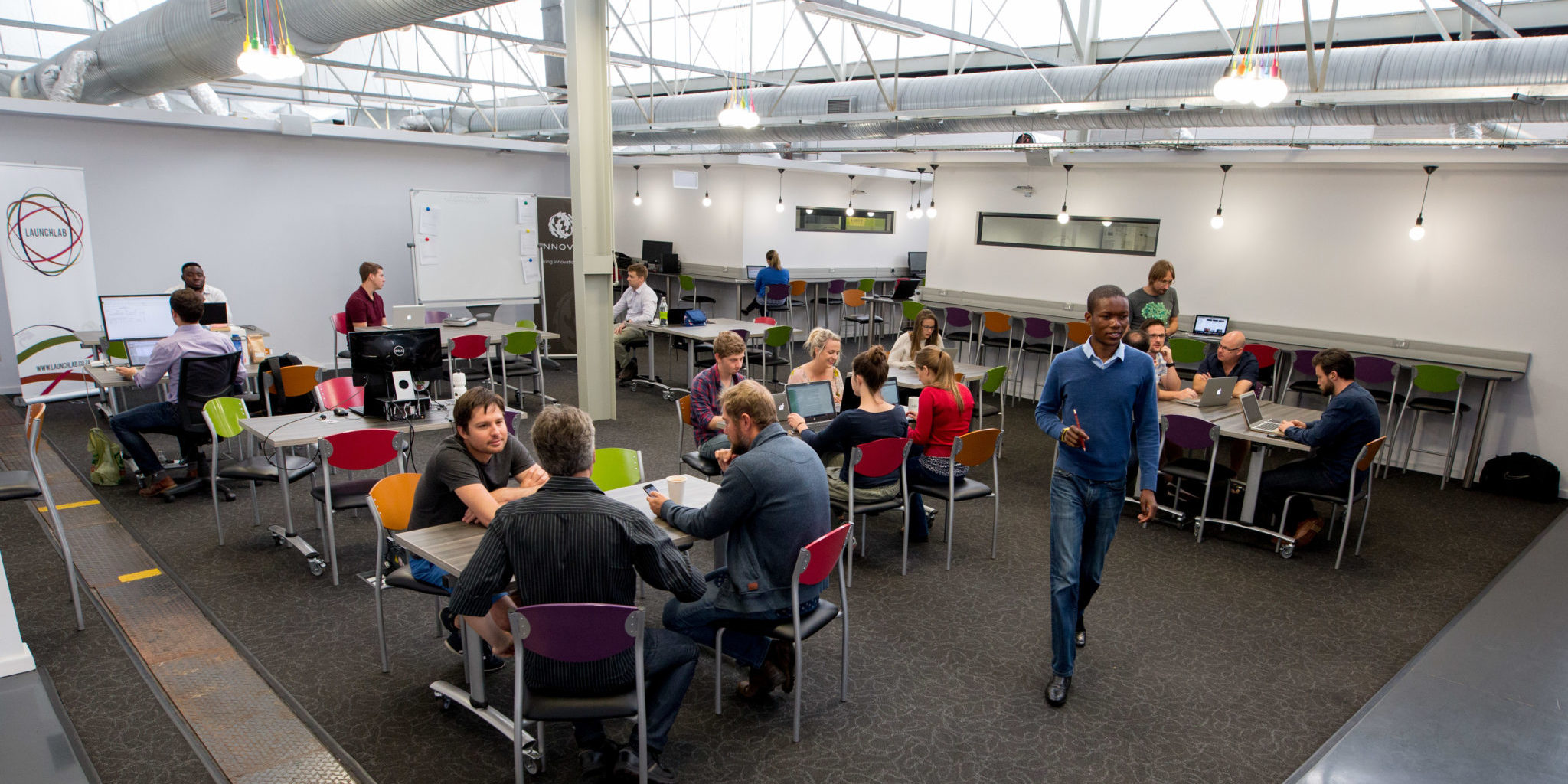Perhaps most famously, Route 128 and Silicon Valley in the United States developed around the Massachusetts Institute of Technology and Stanford universities, while key European knowledge regions developed at the Sophia Antipolis high-tech park in Côte d’Azur, France, and the Leuven region in Belgium.
In Africa, however, it is a relatively new phenomenon. But some universities on the continent are working towards setting themselves up as catalysts of innovation and entrepreneurship. Notable mentions must go to the University of Nairobi and the American University in Cairo, but South Africa is leading the charge.
The likes of Stellenbosch University, the University of Cape Town (UCT) and University of the Witwatersrand (Wits) are focusing more than ever on equipping their students to be entrepreneurs, primarily in response to unemployment issues in the country. Almost 50% of those aged between 15 and 24 in South Africa are without a job, and some tertiary institutions are adapting by equipping them to become job creators.
READ MORE: Forbes Africa Under 30 Technology Entrepreneurs
Bakang Moetse is Impact Investing Project Manager at the Bertha Centre, a dedicated entrepreneurial unit within the Graduate School of Business at UCT. She says high youth unemployment had made the promotion of entrepreneurship an imperative for many African governments.
Loading...
“Whilst government may be responsible for creating an enabling environment for the development of businesses, universities play a key role in delivering skills and expertise, as well as creating enabling environments for incubation of entrepreneurs,” says Moetse.
Universities also stand to gain. At a time when the relevance of university degrees has come into question due to the number of unemployed graduates and lack of employment readiness of those graduates who do enter the workforce, promoting entrepreneurship provides a way of ensuring universities continue to be recognized as key to the development of societies and economies.
“For universities interested in taking on a more active role in this regard, there is a competitive advantage to be gained in becoming leaders within this field of research, which can further bolster their credentials,” says Moetse.
Stellenbosch University runs its own incubator – LaunchLab – and also invests in some student-run tech startups. Head of Incubation Brandon Paschal says universities that do so will produce more employable and resilient graduates, and their reputations will grow as such.
“Also, with the current student fee climate, if universities are not backing and pursuing commercializing university technology, their financial sustainability and broader access to tertiary education is in jeopardy,” he says.
So how have startups incubated by universities benefitted? G-J van Rooyen was an associate professor at Stellenbosch, and launched his bitcoin-based anti-piracy startup Custos Media Technologies out of LaunchLab. He says it had been a great space from which to grow an early-stage company.
“At a startup, you’re constantly juggling concerns and issues. Being in a supportive environment where space and facilities are one less thing to worry about makes a huge difference,” Van Rooyen says. “Since LaunchLab is a hub for startups and investors, it directly impacted our fundraising efforts, and introduced us to our angel investor.”

Michael-John Dippenaar’s on-demand storage space startup Sxuirrel first encountered LaunchLab after winning a competition run by the incubator, earning funding and support.
“Amongst other intangibles thereafter, and in the period leading up to then and now, we gained help in the form of advice, community and networks,” Dippenaar says.
“We had support in finding lawyers, connecting to additional entrepreneurs to learn from, and access to soft-skill building resources.”
Training students – and professors – in entrepreneurial skills and providing them a safe space from which to launch their ideas in one thing, but universities also need to ensure they have solid links with corporates and funders to help incubated startups scale. This can be a challenge.
However, Tine Fisker Henriksen, Senior Project Manager, Innovative Finance, at Bertha Centre, says the credibility associated with university brands lends itself to bringing in new partnerships and streams of funding entrepreneurs on their own would not be able to tap into.
“We are seeing increased interest from the corporate sector to get involved in supporting entrepreneurship, and we have managed to establish partnerships that have been valuable in this regard,” she says.
“From our point of view, there is great potential to expand this beyond mere sponsorship of events and once-off fundraising, as is commonly the case, and move in the direction of more sustainable partnerships approaches for rising entrepreneurs.”
The initiatives at places like Stellenbosch and UCT are well developed, with a track record of helping startups launch and raise funding for their next stage of development, but are enough universities following their lead?
Paschal says there is some evidence of this, but it takes time to transform very traditional and conservative institutions. Part of the challenge is that “startup skills” are intangible, EQ-related things that you cannot learn in a classroom.
“The push for universities spinning out companies, and supporting startups and SMEs, is disrupting the traditional role of universities. The trend is going in this direction, but generally universities are battling to get beyond the academic side,” he says.
Henriksen agrees more needs to be done.
“We have seen the top universities develop more entrepreneurial courses, hubs and initiatives. But there is definitely room for greater involvement, and coordination of efforts in this space to create a synergized impact,” she says.
– Tom Jackson
Loading...
